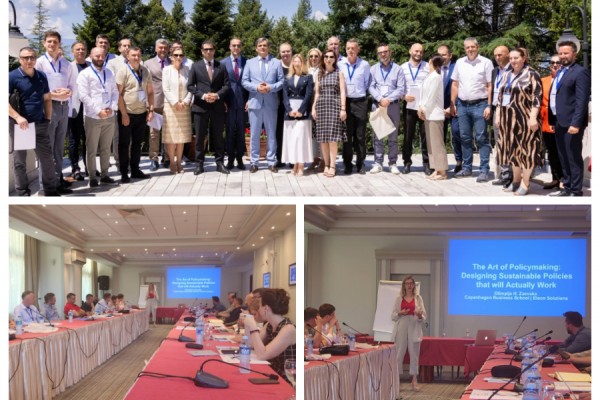
Summer School on Transport & Trade Facilitation: Simplified Customs Procedures, Reduced Trade Barriers and Improved Connectivity for Efficient Movement of Goods and Services
3-7 July 2023, Ohrid, North Macedonia
ReSPA and Transport Community organized the Summer School that tackled transport and trade-related topics crucial for promoting an efficient and seamless movement of goods and services across borders aiming to simplify customs procedures, reduce trade barriers, enhance logistics capabilities, and improve connectivity.
The School also served as a forum to exchange knowledge and best practices within the region and with EU Member States on one-stop Border-Crossing-Points (BCP), synchronized/joint controls, exchange of information and coordination of border authorities, recognition of inspection certificates etc. Participants got a deeper insight into the Legal and institutional framework for free movement in the EU, Integrated Border Management (IBM) simplified customs procedures and models of joint controls, transport innovations and BCP infrastructure, single national windows and other cooperation platforms, private sector participation, and the Green Lanes initiative.
Rich discussion, feedback from different stakeholders, and an exchange of concrete case studies of the BCP Tabanovce/Preševo and Kjafasan/Qafe Thane additionally enriched the program, bringing a broader perspective of instruments to simplify customs procedures.
Alongside prominent experts and lecturers, ReSPA Expert Olimpia Zaevska elaborated on the Art of policymaking: designing sustainable policies that work. Alongside elaborating on concepts known as successful policies (in terms of concept, policy design/cycle, types of policies, and their implication as bottlenecks or catalysts of change), Zaevska also focuses on how we can embark on cross-sectorial policies via developing mission-oriented policies/moonshots as the way for cross-sectorial policies and highlighting the mission map approach to policymaking. Finally, Zaevska elaborated on how to increase the odds of successful policymaking.



